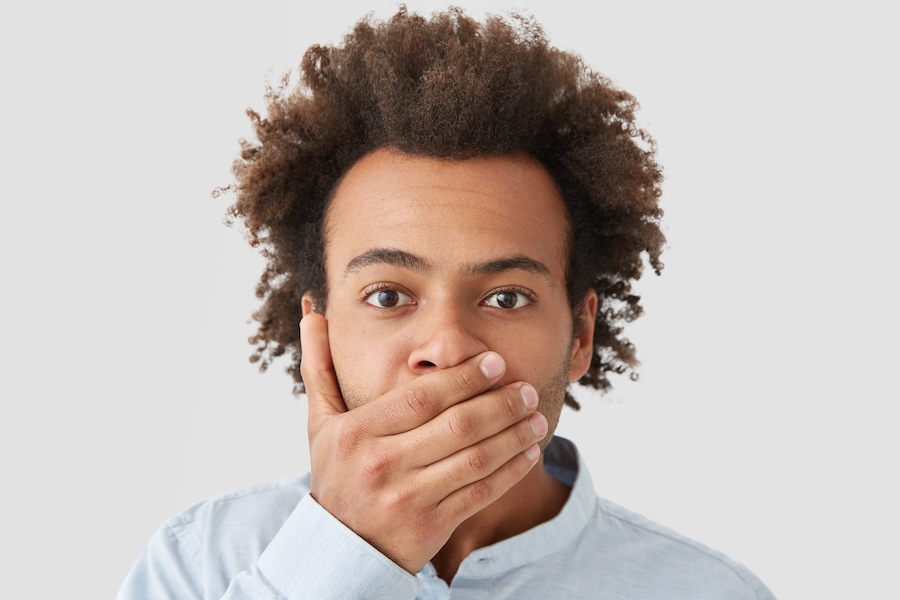Bad breath, medically known as halitosis, is a common problem that can cause significant discomfort and social embarrassment. Understanding the causes of bad breath is crucial in effectively addressing and preventing this often-distressing condition. Bad breath can stem from various sources, including dietary habits, oral hygiene, and certain medical conditions.
This comprehensive guide will explore seven common causes of bad breath and provide practical solutions to combat each. By gaining insight into these causes, individuals can adopt effective strategies to maintain fresh breath and enhance their oral health.
1. Poor Oral Hygiene
Cause: One of the primary causes of bad breath is poor oral hygiene. Food particles in the mouth can decay and host bacteria, leading to unpleasant odors. Plaque, a sticky film of bacteria that forms on teeth, can also contribute to bad breath when not regularly and effectively removed.
Combat Strategy: To combat bad breath caused by poor oral hygiene, it’s essential to brush your teeth at least twice a day and floss daily. This helps to remove food particles and plaque. Regular dental check-ups and cleanings are also crucial, as they help maintain oral health and prevent halitosis.
2. Foods and Beverages
Cause: Certain foods and beverages can cause bad breath. Items like garlic, onions, and strong spices are notorious for lingering odors. Additionally, coffee and alcohol can create a favorable environment for bacteria growth in the mouth, contributing to bad breath.
Combat Strategy: To combat bad breath from foods and beverages, it’s important to maintain good oral hygiene practices. Brushing or rinsing the mouth after consuming such items can help. Chewing sugar-free gum or using mouthwash can also neutralize odors.
3. Tobacco Products
Cause: Smoking or chewing tobacco products are significant causes of bad breath. They leave their odor and contribute to gum disease in the elderly and young. And this is also one of the major sources of bad breath.
Combat Strategy: Quitting tobacco use is the most effective way to combat this cause of bad breath. Regular brushing, flossing, and mouthwash can help temporarily mask the odor. However, cessation of tobacco use will provide long-term benefits for both breathing and overall oral health.
4. Dry Mouth
Cause: Dry mouth, or xerostomia, is a condition that reduces saliva production. Saliva is essential for neutralizing acids and washing away dead cells and food particles. Without enough saliva, these substances can decompose and cause bad breath.
Combat Strategy: Research suggests that hydration is a key to fight the bad breath. Drinking water regularly can help maintain saliva flow. Chewing sugar-free gum or sucking on sugar-free candies can also stimulate saliva production. If dry mouth is chronic, it’s advisable to consult a healthcare professional for potential treatments.
5. Medical Conditions
Cause: Certain medical conditions, such as sinus infections, tonsillitis, gastroesophageal reflux disease (GERD), and diabetes, can be underlying causes of bad breath. These conditions can produce specific types of odors and require medical attention.
Combat Strategy: Addressing the underlying medical condition is crucial in these cases. Regular medical check-ups and following prescribed treatments can significantly reduce bad breath. Maintaining good oral hygiene is also essential in managing bad breath associated with medical conditions.
6. Gum Disease
Cause: Gum disease, particularly in its more advanced stages, like periodontitis, is a major cause of bad breath. Bacteria trapped in pockets at the base of teeth produce odorous compounds as a byproduct of their activity, leading to persistent bad breath.
Combat Strategy: Combating bad breath caused by gum disease involves a two-pronged approach: improved oral hygiene and professional dental care. Regular brushing and flossing are vital to remove plaque and reduce bacteria. Additionally, dental visits for cleaning and potential periodontal treatments are essential in managing gum disease and its associated bad breath.
7. Dentures or Dental Appliances
Cause: Poorly fitted dentures or unclean dental appliances can also be causes of bad breath. Food particles trapped under dentures or in orthodontic appliances can breed bacteria and produce foul odors.
Combat Strategy: To combat this cause of bad breath, it’s important to thoroughly clean dentures or dental appliances, as dental professionals recommend. This might include daily brushing of the appliances and soaking them in a cleaning solution. Regular dental check-ups ensure dentures fit properly and not cause irritation or additional oral hygiene problems.
Wrapping up
Understanding the various causes of bad breath is the first step towards effectively combating it. Whether improving oral hygiene, adjusting dietary habits, quitting tobacco, addressing dry mouth, or seeking medical attention for underlying conditions, practical solutions exist for each cause.
Remember, maintaining good oral health combats bad breath and contributes to overall well-being. If bad breath persists despite these measures, it’s advisable to consult a dental or healthcare professional for further evaluation and guidance.
Worried about your bad breath?
Do visit us at The Port Dental in Calgary to get it checked by expert dentists who will offer customized solutions.



